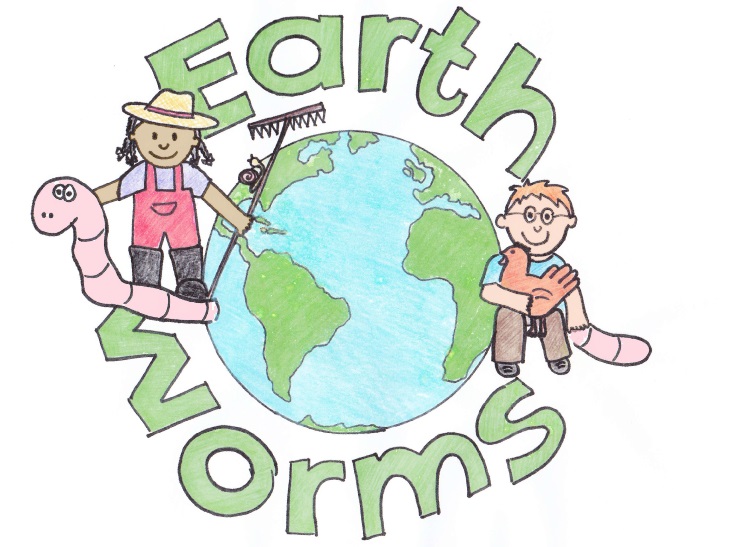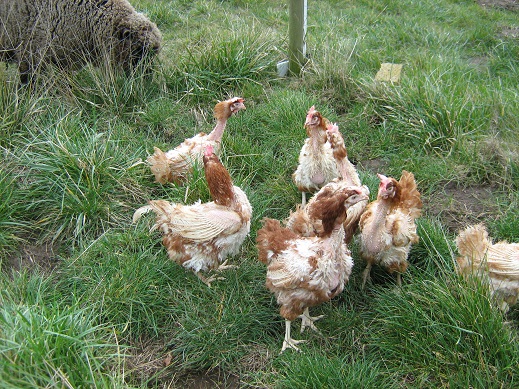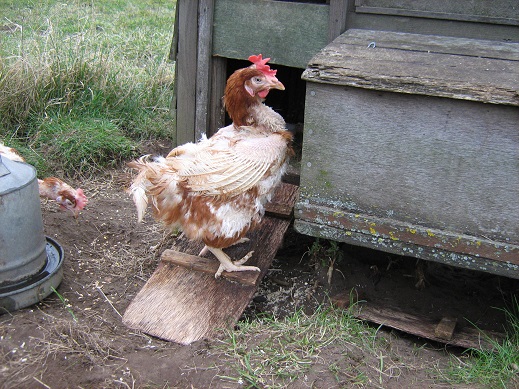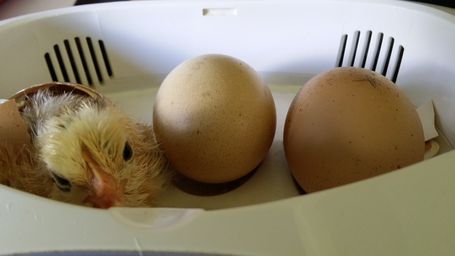 |
Earth-Worms Hen Hire
Tel: 01759 368556 Earth-Worms mobile 07743 479780 Email: earth-worms@outlook.com |
|
|
The Earth-Worms hens The hens we use at Earth-Worms are 'ex-caged' hens that we rehomed through the BHWT (the British Hen Welfare Trust) they are approximately 12-18 months old when they arrive at Oak House Farm, the age at when they are considered by commercial poultry farmers to be past their most productive egg laying age, at this point they are usually then sold on to factories to be made into pies or used for animal feed. The hens are pretty 'feather bare' when they arrive (some new owners lovingly knit them little stripy jumpers in cold weather!) and their combs are large, floppy and pale, they have been used to a life indoors. It is a wonderful moment to open up a box containing these hens outside and watch them tentatively peeping out at the world, when they eventually pluck up courage to venture out they stand in a huddle gazing around them wondering what the big blue thing and the round yellow thing above them is. Within a few weeks new feather growth is visible, like tiny paintbrushes, their combs also begin to stand up and are changing to bright red, amazingly their natural instincts also begin to emerge. It's a joy to see them racing around chasing insects, throwing up clouds of soil with threir wings as they learn to dust bath and scratching in the earth with their feet looking for tasty morsels. So, when the hens are not in situ at a school or nursery they are free ranging around Oak House Farm, following anyone with an orange bucket in the hope there is something for them and trying to sneak into the vegetable garden. Ex-caged hens are bred to not go 'broody' i.e sit on a nest of eggs until they hatch, so Alison and Fran both have small electronic incubators in their kitchens into which they pop three eggs at a time. The incubator keeps the eggs warm, moist and turns them regularly just as a mother hen would, after 19/20 days you can hear chicks cheeping inside the eggs to let their mother know they are on their way and 'pipping' which is tapping with its egg tooth in order to make a hole and break out. We marvel each time at how, after just 21 days, perfect fluffy chicks emerge, we are pleased to bring in chicks of varying ages during our visits to begin to illustrate to children the life cycle of the chicken and the topics of change and growth. We also have several very handsome cockerels living at Oak House Farm, keeping the girls in order (and waking up the neighbours) and are pleased to bring one into the setting enabling the children to see up close the differences between hens and cockerels.The drawing activity we offer really encourages the children to see the range of colours in the cockerel's feathers and study closely how different the feather shape is between hens and cockerels.
|
|
| © The Waldrons @ Oak House Farm |



